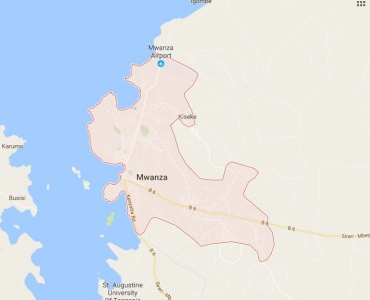Cotton Farming
Mwanza Textile Mill, the only textile mill remaining active in the region, reported to be operating at 25 percent of its installed capacity of 10 tonnes per day due to inadequate supply of cotton;• Contract farming with small holder farmers to raise yield per unit area and also raise the quality of seed cotton produced;• Invest in commercial large scale production of cotton;• Introduce improved seeds with long staple cotton to replace the short staple variety of cotton; and Both models are possible: where an investor can have a model farm and is supporting small holder farmers with technical inputs and access to markets.
Leading districts in cotton production are: Kwimba (83.3percent) and Misungwi (15.96 percent).
The region produces an average of 56,906 tonnes of cotton per year (constituting 47.5 percent of cashcrops grown by farmers and provide 26.2 percent of farm earnings in the region); But this production is below the requirements byGinneries, which are operating at below capacity due to inadequate seed cotton production; Need to supply more in response to anticipated investments in textile mills and demand for localclothes; EAC has plans to phase out imported garments hence the need to expand production of cotton to supply the new and revived textile mills; Cotton can also be outsourced from neighbouring regions of Geita and Shinyanga.
Oilseeds farming
Contract farming with small holder farmers to raise yield per unit area and also raise the qualityof oilseeds from groundnuts and sunflower;Invest in commercial large scale production of sunflower and groundnuts; and• Both models are possible: Where an investor can have a model farm and is supporting small holder farmers with technical inputs and access to markets.
Preferred locations
Kwimba and Misungwi are ideal for the cultivationof sunflower seeds and groundnuts.Key investment rationale The region has the potential to produce more amounts of groundnuts and sunflower, if the market for these products is assured and stimulated by investments in agro-processingfactories;
Support available
LGAs have shown commitment to provide conducive environment for acquiring land for large scale farming and/or facilitating contract farming with smallholder farmers.
Some LGAs are ready to facilitate joint ventures between potential investors and local private investors; and
Policy and political support at national, regional and local level.
Horticulture: vegetables and fruits
Farming of vegetable crops, including tomatoes, onions,green pepper, cucumber, water melons, pineapples,mangoes, avocado, French beans; and
Production essential for raw materials to be the established processing of the commodities.
Preferred locations for investment
Support available
Government to transform some areas of the existing paddy irrigation schemes to cater for horticultural production;
Government has removed taxes on imported equipment for greenhouses and drip irrigation, which is now being encouraged in order to ensure production is throughout the year;
Districts have commitments to attract investments in producing raw materials to feed the established industries as per government motto; and
Policy and political support at national, regional and local level.
Legumes (chicken peas) farming
Enter into contract farming with small holder farmers to raise yield per unit area and also raise the quality of legumes,especially chick peas, pigeon peas and soybeans are highly demanded in the Indian and Chinese markets; and
Invest in commercial large scale production of soya, chickpeas and pigeon peas, possibly using the existing paddyfarms as a second crop.
Preferred locations
Magu, Kwimba and Misungwi are already engaged in production of legumes for export.
Support available
LGAs have shown commitment to provide conducive environment for acquiring land for large scale farming and/or facilitating contract farming with smallholder farmers;
Some LGAs are ready to facilitate joint ventures between potential investors and local private investors; and• Policy and political support at national, regional and local level.

Ofisi ya Mkuu wa Mkoa, Mkoa wa Mwanza, 2 Regional Drive
S.L.P: 119, Mwanza.
Simu: 028-2501037
Simu ya Mkononi: 028-2501037
Barua Pepe: ras@mwanza.go.tz
Hakimiliki©2018. Mkoa wa Mwanza . Haki zote zimehifadhiwa.